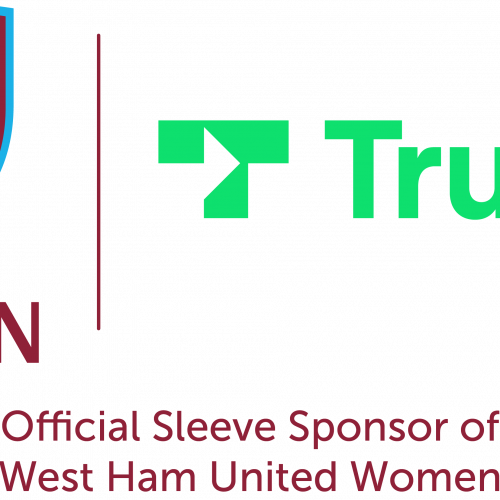Leeds United badge: How to avoid falling foul of fan engagement
This is a guest post by Tom Dougherty, UX Director, Delete.
In recent years, fan engagement has rapidly risen up the agenda for the business of modern sport.
Providing the best possible experience to the fanbase has become almost as important for many football clubs as the players and the ground. It’s easy to see why. Today’s sports supporters are increasingly vocal. On both positive and negative issues, their voices are easily heard and amplified thanks to the power of social media. Many teams are also seeing their fanbase grow on the international stage, most notably Leicester City through the combination of their Thai sponsor and Premier League triumph. Making sure fans at home and away can experience the highs and lows of their team, however they choose to, can be a big task.
For sports teams, new technology to connect with fans also acts as a two-way street, making it easier than ever for organisations to discuss and involve their supporters in their strategies. For many teams, fan engagement has become fundamental to informing their tactics for growing their club as a business and brand. However, as we have recently seen, putting too much faith in feedback from fans, while vital, can also just as easily lead brands astray.
Leeds United both engaged and alienated their famously loyal fanbase by announcing the launch of a new club crest, one which sought to update the established badge which has been in place since 1999. To do this, the club conducted a research study with 10,000 of its fans, across a six month period. The result was a new crest designed around the ‘Leeds Salute’, a ‘chest bump’ gesture used by the fans.
Could Leeds fans get their way?
The club has delayed the launch of a new crest.
More details????https://t.co/1AckgSdbsi pic.twitter.com/O1Hpez4mKk
— BBC Sport (@BBCSport) February 24, 2018
After a grand unveiling, the club’s fans hated the new badge design. In their view it was too modern, and too far removed from the established club identity and heritage, aside from the colours used. Fan backlash was swift, and within 24 hours the club had retracted the badge, relaunched its consultation, and even suggested the new crest design would be chosen from fan-sourced submissions.
From the outside in, this seems like an easy mistake to predict. The crest itself is such an iconic symbol of the club, with a deep rooted emotional connections for the fans, that any suggested change to it would have to be approached carefully. When you factor in that other clubs have experienced similarly passionate responses to attempted crest redesigns, and that new version simply removed the motto, it seems even easier to see the likely trouble on the horizon. For Leeds however, months of expensive research and fan opinion had proved a very costly mistake. Changes have to be made taking fan opinion and feedback into account, as it could be equally damaging for the decision to have been made without any consultation. But major decisions have to make sense for the brand, while respecting the emotional ties which fans have with their chosen team. This is especially important for an emblem as important to the fans as their team crest.
Wisdom can undoubtedly be drawn from the crowd, but in order for it to be effective it has to be asked for in the right way to be useful. Even though fans recalled the Leeds salute fondly when asked, it doesn’t necessarily mean that they want to see it as their team’s logo. Fan feedback is essential, but it must also be informative, expansive, and filtered through the goals of the club itself and their objectives. For example, when designing a new digital platform for Southampton FC at the height of its ascension to the Premier League, we worked hard to ensure that the needs and expectations of fans were baked into the DNA of the new platform. It had to be distinctive, respect their content demands and habits, while also expansive enough to reflect the club’s new top-flight and international expansion ambitions.
Of course, this was a website, not a rebrand. But the feedback was carefully assessed to map out how supporters wanted to receive information from Saints, and when. It also respected the kind of information the fans would welcome from their club. The end result was something which the fans loved, with a focus on keeping them updated with bitesize content on the latest from Saints. Fan feedback and input was critical to the development of this site, but it was supporting and informing the process, not leading it.
When seeking input from supporters, the fan view has to be set wide enough, while also being balanced out with the creative and strategic expertise required to handle such delicate assets. While an urge to continually modernise in today’s digital age will ultimately drive these decisions, it’s important to remember not everything needs reinvention. To update the crest at all could easily risk sidelining years of heritage and dedicated supporter loyalty.
A manager doesn’t necessarily make team decisions based on callers to 5Live after a disappointing game. In the same way, a club should know what elements of their brand are especially sensitive, and put strategies in place to test them with small numbers of dedicated supporters before making drastic or sweeping changes. Fans have to be consulted and involved, but they don’t necessarily understand the reasons why changes have to be made.
Few other things in life can inspire quite as much passion as a football club in the mind of a dedicated fan. This dedication is a great asset to clubs the world over, and involving supporters in business decisions is a natural step to make when alienating them can prove so costly. Ultimately, clubs have to exercise their own strategy and judgement when it comes to evolving important team assets, to make sure their supporters come with them on that journey too.
You might also like
Leeds United become first football club to sell official jerseys on TikTok
Leeds United is the first football club in the world to partner with TikTok to sell official merchandise and replica jerseys. Coinciding with the release of the new rhapsody purple,
Lewes FC Appoints Sue Anstiss To Its Board Of Directors
The Lewes FC Board is delighted to announce that it has co-opted Sue Anstiss as a Lewes FC Director. Sue has been a driving force for equality in sport for
Trustly extends partnership to become West Ham United Women’s Sleeve Partner
West Ham United is pleased to announce that Trustly has enhanced its relationship with the Club by becoming the Women’s Sleeve Partner. Trustly, the leading global account-to-account payments platform, became








